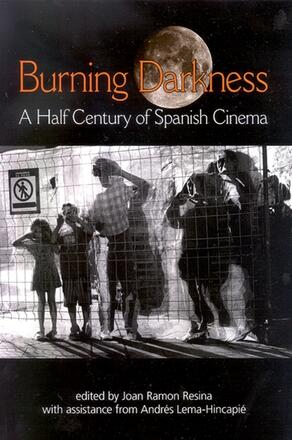
Burning Darkness
A Half Century of Spanish Cinema
Alternative formats available from:
Encourages a deep reading of a selection of essential Spanish films.
Description
From the origins of the New Spanish Cinema in the 1950s to the end of the last century, Burning Darkness features essays on a selection of essential films by Spain's most important directors, including Pedro Almodóvar, Luis Buñuel, Víctor Erice, Ventura Pons, and others. Contributors focus on current theoretical debates and issues of representation, politics, cultural identity, and aesthetics. Rather than historically surveying Spanish films, the book encourages a deep reading of these essential works and the ways they cast light on specific aspects of Spanish society and its recent history. Accessibly written, it will appeal not only to students and scholars but also to anyone interested in Spanish cinema.
Joan Ramon Resina is Professor of Spanish and Portuguese at Stanford University. His many books include After-Images of the City (coedited with Dieter Ingenschay). Andrés Lema-Hincapié is Assistant Professor in the Department of Modern Languages at the University of Colorado at Denver.
Reviews
"The contribution of Burning Darkness to the field of film studies and to the field of Spanish cinema studies, in particular, constitutes one of the best—if not the best—and most complete books of its kind … Burning Darkness is an excellent, innovative, and well-written book, accessible not only to scholars and students but also to anyone interested in Spanish cinema." — Revista de Estudios Hispánicos
"…provides a panoramic view of Spanish cinema from 1952 to the end of the millennium … a highly useful resource." — Bulletin of Hispanic Studies
"The essays are generally thoroughly researched and well written, and they take fresh, fruitful approaches to their subject matter … This collection significantly furthers understanding of Spanish cinema." — CHOICE
"The editors have brought together some of the most important scholars in contemporary peninsular studies from North America and Europe. From one chapter to the next, the book consistently demonstrates an interplay between film (as both industry and artifact) and the social, political, economic, and cultural factors that surround it. In its plurality of critical perspectives, Burning Darkness demonstrates the depth and breadth of the critical dialogue that Spanish film has generated over the last half century." — Colleen P. Culleton, University at Buffalo, State University of New York